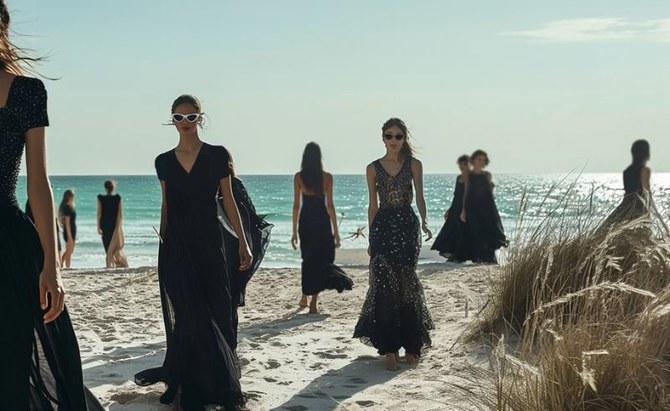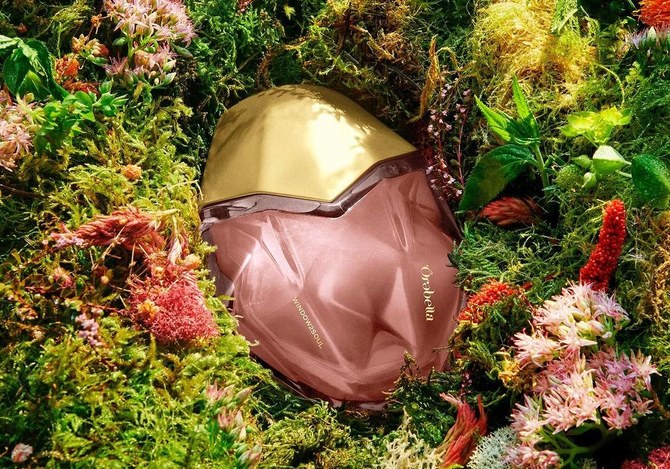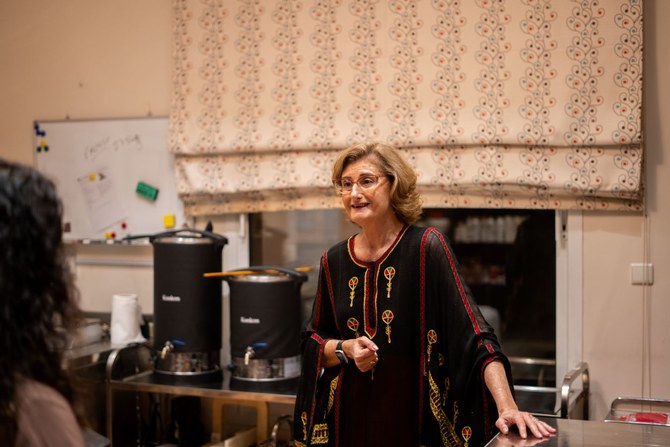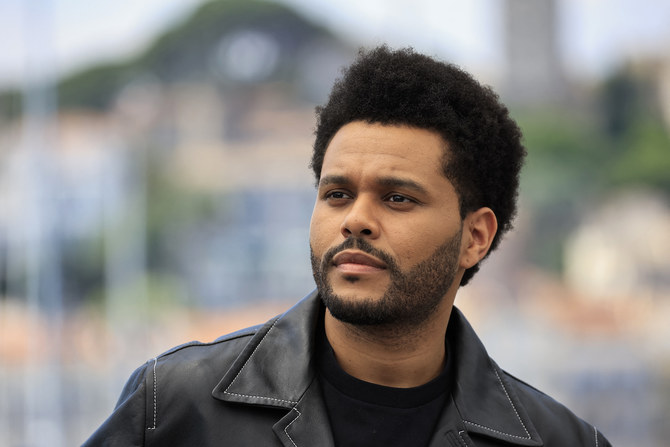DUBAI: Fashion has a new buzzword, and it is not a color or silhouette — it’s a total change towards how fashion is produced and consumed. The industry is the world’s second-largest polluter — at the same level as the water, energy and chemical industries. It can truly be seen as a threat to the planet: From the amount of clothes that end up in landfills to its greenhouse emissions, the figures are now at record levels and increasing every year.
The good news is that the industry is finally starting to take responsibility and major labels are now looking at ways to make their work sustainable. While a few European luxury houses have been trying to address this issue for the last 15 years, fast-fashion brands like Zara have only been seriously looking at sustainability for the last year or so. That’s true, too, of regional fashion labels.
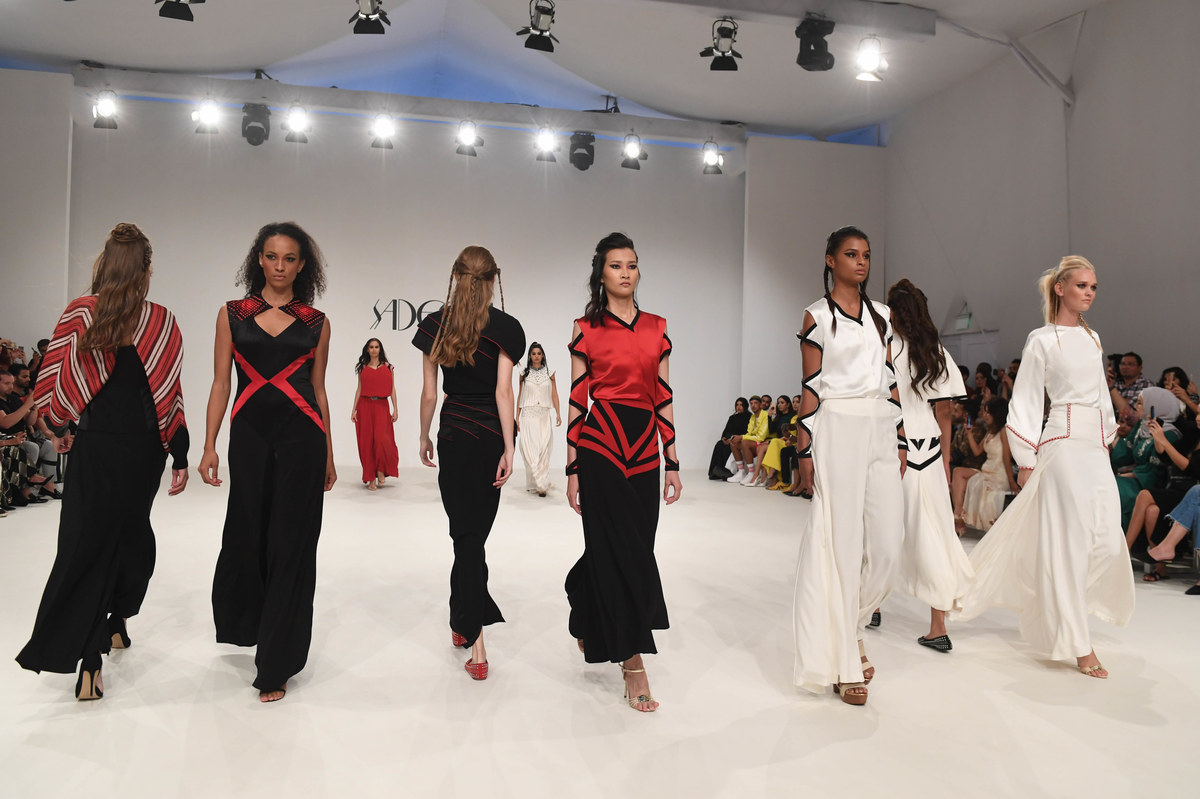
Sadeem displayed its sustainable collection at this month’s Fashion Forward Dubai. (Supplied)
At this month’s Fashion Forward Dubai (FFWD), one of the region’s major fashion platforms, sustainability was a major highlight for the first time. Of the 21 labels showing, five — Saudi Arabia’s Sadeem, Roni Helou, Reemami, Farah Wali and Hass Idriss — showed sustainable collections, and it was also the focus of a talk about the future of fashion.
Bong Guerrero, CEO and Co-Founder of Fashion Forward Dubai believes that, in many ways, regional fashion has a natural alignment to sustainability. “Higher quality and timeless design are important aspects of sustainable fashion, as are bespoke and vintage fashion,” he says. “All of these are hallmarks (of) the region’s fashion landscape.”

Sustainability was also the focus of a talk about the future of fashion at FFWD. (Supplied)
Sustainable fashion is a broad term. It is about more than simply using fabrics that are environmentally friendly, covering all areas of fashion. Aljawharah Sadeem Abdulaziz Alshehail — founder and designer at Sadeem, who has been designing sustainable collections for three years now — tells Arab News, “When I design, I think about going from cradle to cradle.” That’s a term that crops up often when talking about sustainability — meaning that products should be able to have multiple ‘lives’ (as opposed to cradle-to-grave, meaning that, although the product may last a long time, it will eventually be junked). Sadeem works only with textile mills that are eco-friendly and she never goes for mass production —making sure that there is no waste. “I do not follow seasons,” she says. “I make clothes that women will want to wear for years.”

Sadeem is a Pret-a-Couture fashion brand by Saudi designer Sadeem Alshehail. (Supplied)
At FFWD she presented a collection called “Awaab” (Doors), which she says was inspired by her homeland — “(Saudi Arabia) is a nation moving forward without letting go of the past,” she says.
Her designs reflected this. While their style was minimalistic, she used details like embroidery and appliqué as a highlight. The traditional geometric pattern of Sadu was a recurring feature. “The triangle is something that is so much a part of this region’s design history,” she says.
These were clothes made for the modern woman, which could be worn anywhere, from the boardroom to a dinner party. The collection included maxi dresses and lounge-style tops and trousers in a palette of red, white and black, ensuring versatility.

Sharjah-based Reema Al-Banna also showed a sustainable collection at FFWD. (Supplied)
“Do not underestimate the consumer in this region. She is starting to understand that sustainable fashion is (necessary), and it will become a major part of regional fashion,” says the Saudi-based designer.
Sharjah-based Reema Al-Banna also showed a sustainable collection at FFWD and is working towards making her label — Reemami — 100 percent sustainable. “It is becoming a trend in the region, and buyers from major stores in the Middle East now ask you how your produce your clothes,” she says. “We try our best, but the region is still adapting to sustainability.”
Many of the fabrics Al-Banna sources are recycled and she ensures patterns are cut in a way that ensures her fabrics fully optimized, “And whatever is left over I use to make a hair accessory or something that can be used,” she adds.

Reema Al-Banna is working towards making her label — Reemami — 100 percent sustainable. (Supplied)
Her designs are quirky. She likes to play with color, pattern and cut, designing for women who like a graphic, bold take on fashion, and for all body types (at FFWD, the Saudi-born model and body-positivity activist Ghaliah Amin walked for Reemami).
Lebanese designer Roni Helou presented a collection of clothes made from surplus-stock fabrics — and shot the campaign for his collection at a landfill, to emphasize the amount of waste generated by the industry. Some of the clothes in his collection served multiple purposes — for instance a skirt that can be turned into a shirt. Outerwear is his forte, and a coat from his collection is a truly a piece you can wear for a lifetime.
“It is about making fashion that leaves a positive impact ,” says the young designer.

Many of the fabrics Al-Banna sources are recycled. (Supplied)
The Middle East may still be playing catch up when it comes to sustainable fashion, but there is no doubt that awareness is growing. The region seems to be waking up to the idea that clothes with a conscience are the way forward for a woman of style. As Guerrero says, “The focus on sustainability in fashion is only set to grow. It’s a virtuous cycle: The more that designers incorporate sustainable business practices and consumers respond positively, the more the media will cover this facet of our industry.”
He continues: “Sustainability seems to be moving from a ‘nice-to-have’ talking point to a philosophy of shared values between designers and their audiences.”




